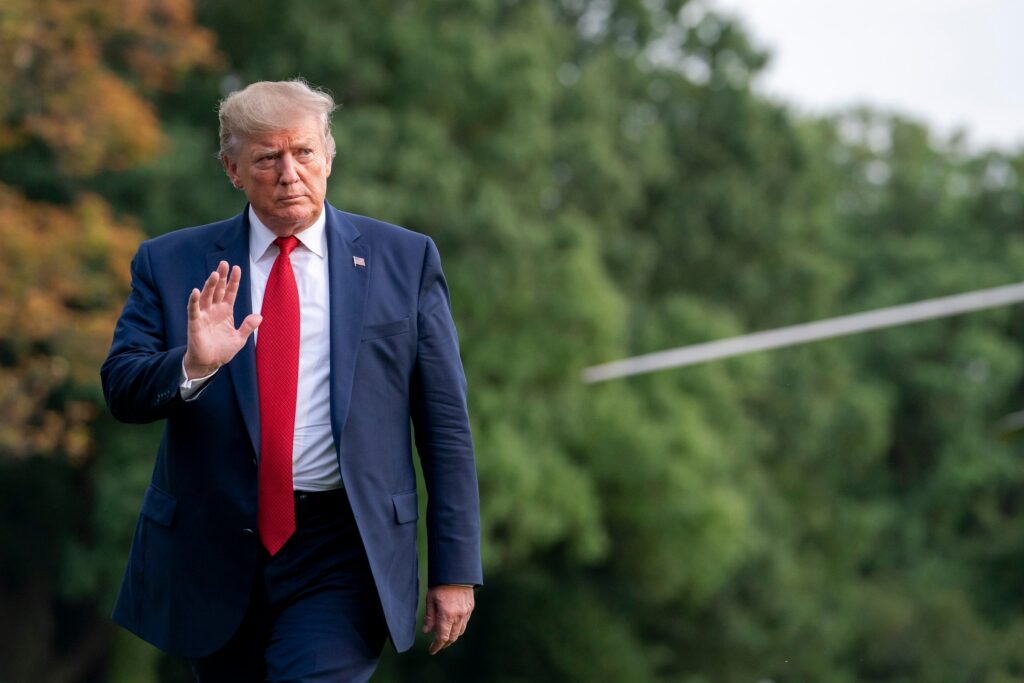The Kremlin has rejected speculation about a near-term summit between Vladimir Putin and Volodymyr Zelensky. At the same time, Donald Trump repeated his call for both leaders to meet and try to end the war in Ukraine.
The idea of direct talks gained attention after Trump met Putin in Alaska last week. On Monday, he hosted Zelensky and seven European leaders at the White House.
Trump admitted the war would be difficult to resolve. He also warned that Putin might have no interest in stopping hostilities. “We’re going to find out about President Putin in the next couple of weeks,” he said on Tuesday. “It’s possible that he doesn’t want to make a deal.”
Trump leaves door open to step aside
Trump said Putin would face “a rough situation” if he avoided negotiations, though he gave no details. Later, he suggested it might be better if Zelensky and Putin met without him. He made the comments in a late-night interview with conservative broadcaster Mark Levin.
The US president added that he would attend such a meeting “if necessary,” but preferred to wait before committing.
Putin told Trump on Monday he was “open” to direct talks with Ukraine. Yet Foreign Minister Sergei Lavrov quickly watered down the claim. He insisted that discussions must begin with experts and progress step by step.
Russian deputy envoy to the UN Dmitry Polyanskiy said no one had rejected the idea of talks. But he stressed the summit should not become “a meeting for the sake of a meeting.”
Nato discusses strategy while Moscow floats proposal
Nato military chiefs will meet virtually on Wednesday. Britain’s top commander, Admiral Tony Radakin, has travelled to Washington for talks on a reassurance force in Ukraine.
Reports suggest Putin proposed that Zelensky travel to Moscow for discussions. Kyiv was never likely to accept such an invitation. Analysts called it a far-fetched option designed to look constructive.
Recent discussions appear to have given Trump a sharper understanding of the conflict. He now recognises the wide gap between Russia’s demands and Ukraine’s position.
Trump once claimed he could quickly deliver a ceasefire from Putin. That promise has not materialised. He now urges a permanent peace deal supported by firm security guarantees for Ukraine.
Zelensky and European leaders have pressed Trump to support such measures. They argue Ukraine’s sovereignty depends on them if a peace deal is signed.
Trump rules out US troops but signals air support
On Tuesday, Trump said the US could help Europe “by air” if allies deployed troops in Ukraine. He ruled out sending American soldiers. He gave no detail on whether air support meant surveillance, fighter jets, or other aircraft.
Meanwhile, France and the UK are leading a “coalition of the willing.” The group is drafting plans for a reassurance force to move into Ukraine if fighting stops.
After a virtual meeting on Tuesday, a Downing Street spokesperson said the coalition would soon meet US officials. Their goal is to secure lasting security guarantees for Kyiv.
Years of hostility weigh on chances for peace
After meeting both Putin and Zelensky, Trump said direct talks might bring peace closer. Yet he admitted there was “tremendous bad blood” between them.
The two leaders last met in 2019. Since then, Russia’s invasion has caused tens of thousands of deaths, heavy destruction, and repeated airstrikes on civilian targets.
Putin rejects Zelensky’s legitimacy and blames him for Ukraine’s closer ties with the West. For years, he has falsely claimed Kyiv is ruled by a “neo-Nazi regime.” He insists leadership change in Ukraine is required for any ceasefire.
Russia also has little incentive to negotiate while its forces maintain an edge on the battlefield.
Still, Zelensky and European leaders continue to favour the idea of direct talks. Zelensky said he was open to “any format” of negotiations. Europeans have already suggested possible summit locations.
They hope their support for dialogue will push Trump to toughen his stance if Putin refuses concessions.
European allies remain unconvinced
European leaders remain less hopeful than Trump about Russia’s intentions. On Tuesday, French President Emmanuel Macron described Putin as “a predator, and an ogre at our doorstep.” He said he doubted Moscow truly sought peace.
Finnish President Alexander Stubb echoed the scepticism. He warned that Putin was “rarely to be trusted” and doubted any meeting with Zelensky would happen.
More high-level talks are scheduled in the coming days. European leaders continue to question how far Trump will go in supporting their security.


